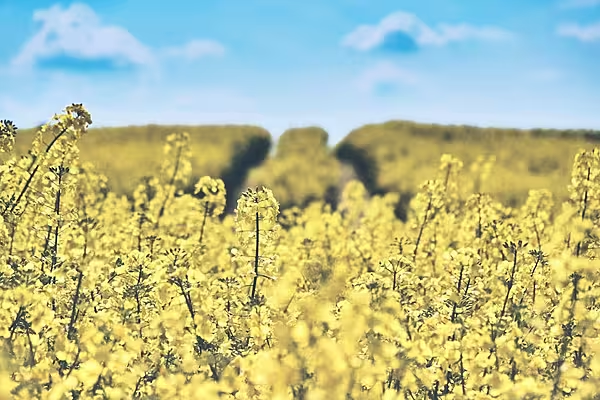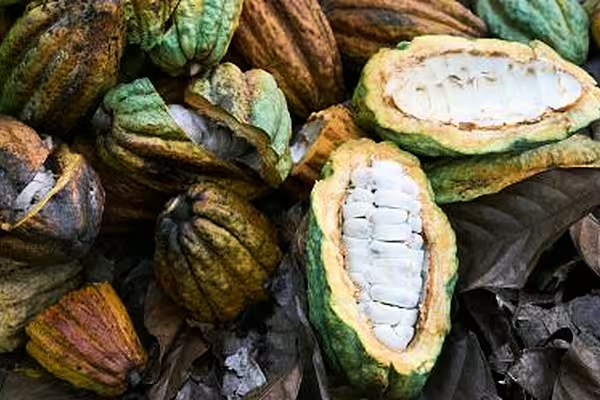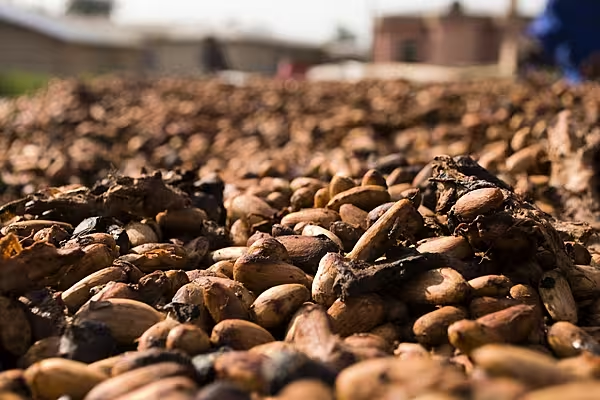A mild end to winter has boosted the growth of rapeseed crops in Europe but also led to insect damage and kept some regions dry, limiting prospects for a recovery from a drought-hit sowing campaign, analysts said.
Severe drought last year caused a sharp drop in the area sown with rapeseed in the European Union.
That has led forecasters to project this summer's EU harvest will be in line with or below a weather-hit 2018 crop of 20 million tonnes that was a six-year low.
Mild Conditions
In France, mild conditions since February triggered a fast resumption of crop growth, but also favoured insect attacks.
"With relatively high pest pressure during both autumn and spring, as well as a rain deficit, rapeseed yield potential is under pressure," Fabien Lagarde of oilseed technical institute Terres Inovia said.
"The return of rainfall needs to be more substantial."
Much of France has seen showers this week, but some regions have low soil moisture after below-average precipitation at the end of winter failed to alleviate the effects of last year's drought.
France's farm ministry has estimated the area sown with rapeseed at 1.3 million hectares, down nearly 17% from last year, and warned farmers could replace struggling rapeseed with other crops.
Clement Winter Weather
In Germany, rapeseed is developing well after the clement winter weather, but a sharp drop in planted area is expected to outweigh any yield gains.
German farm cooperatives in March forecast the country's 2019 crop would fall 13% on the year to 3.19 million tonnes, including a 25% drop in area.
"Rapeseed is looking well with no significant frost damage reported and yields are likely to be well up, but this will not be enough to compensate for reduced sowings,” a German grains analyst said.
"The focus is turning to the need for more rain than usual in the spring to replenish soil moisture," he added.
Reduced Production In Britain
Widespread insect damage, coming on top of an area decline, is set to reduce rapeseed production in Britain from last year's crop of 2.1 million tonnes.
"It looks like farmers are losing more and more crop,” Jack Watts, chief combinable crops adviser with the National Farmers Union, said of insect damage.
A planting survey issued by the Agriculture and Horticulture Board (AHDB) late last year forecast UK rapeseed plantings would be down 3% from the prior season.
Larger Harvest In Poland
In Poland, however, the mild winter is raising the prospect of a larger harvest despite reduced sowings, said Wojtek Sabaranski of analysts Sparks Polska.
"In most regions, the condition of winter rapeseeds is good or very good, and no major winterkill occurred," Sabaranski said, adding more rain was needed.
Poland's rapeseed area is estimated to have fallen by about 5% on the year to around 771,000 hectares.
Taking into account modest winterkill and assuming average yields, Poland's 2019 crop could increase 6% from 2018 to about 2.4 million tonnes, Sabaranski said.
News by Reuters, edited by Donna Ahern Checkout. Click subscribe to sign up for the Checkout print edition.









